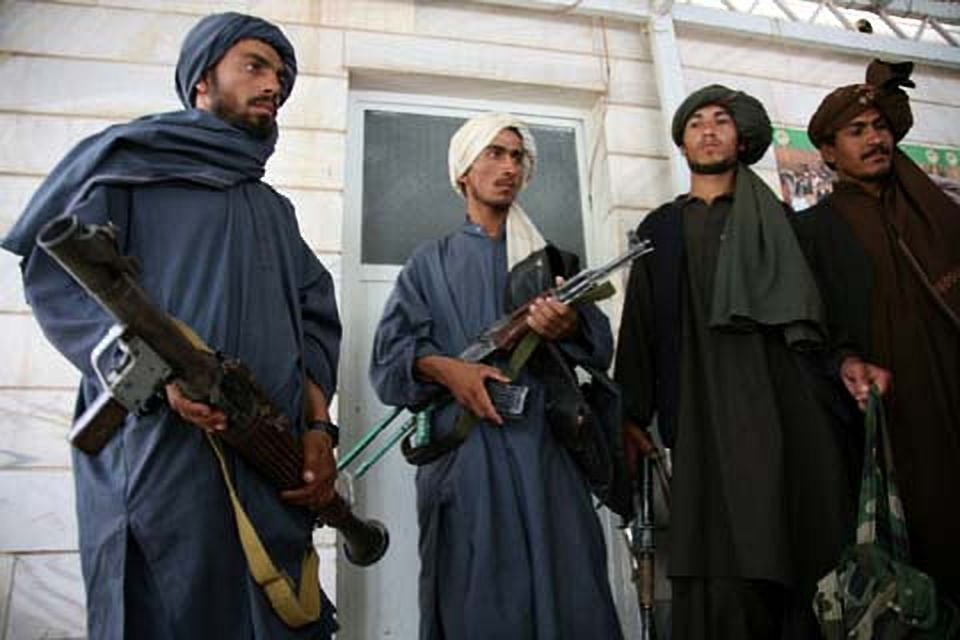Doha/Washington: U.S. and Taliban officials signed a peace deal aimed at winding down the war in Afghanistan after more than 18 years of fighting that turned into the longest conflict in American history.
Secretary of State Michael Pompeo led a U.S. delegation that signed the agreement with Taliban leaders in Qatar on Saturday. The deal — which followed a seven-day reduction in violence — is expected to pave the way toward direct talks between Taliban officials and Afghan leaders in Oslo next month, according to U.S. officials who spoke on condition of anonymity.
The agreement allows the U.S. to immediately begin withdrawing some of its roughly 13,000 troops in Afghanistan, fulfilling a key campaign promise of President Donald Trump to start getting the U.S. out of “endless wars.” But it leaves many key details — including a lasting peace agreement between the Taliban and the Afghan government, as well as the rights of women — up to later talks.
In exchange for the initial U.S. troop drawdown, the Taliban pledge to cut ties with all terrorists and prevent Afghan territories from becoming militant havens. Despite almost two decades of war and $900 billion in spending by the U.S., the Taliban are at their strongest since being ousted by American forces in late 2001, after the group refused to hand over al-Qaeda leader Osama bin Laden following the Sept. 11 terror attacks.
Barring disruptions, U.S. troop levels are expected to decline to about 8,600 within 135 days, with all troops being withdrawn within 14 months. Further declines depend on the Taliban fulfilling their agreement to engage in talks with Afghan officials and confront terrorists, according to U.S. officials.
The agreement comes with the Afghan government in turmoil. The results of the country’s September election, announced this month, are disputed. President Ashraf Ghani claimed victory while his rival, Abdullah Abdullah, rejected the results as hopelessly flawed.
Also read: India to ‘observe’ US-Taliban peace deal signing after staying away from talks for 2 years
Ahead of the signing of the Doha deal, U.S. officials described the agreement as the beginning of an effort to reach a broader political solution to a war that has spanned three U.S. presidencies and killed or injured more than 100,000 Afghans over the past decade alone, while costing the lives of over 2,400 American troops.
Even as Taliban and U.S.-backed Afghan forces have fought to a stalemate, Islamic State terrorists gained a foothold in the country.
“Everyone is tired of war,” said Masood Mahfuz, a 42-year-old Afghan whose brother was killed in a Taliban bombing three years ago. “We are thirsty for peace. The only way is to make peace with the Taliban and forget the past.”
U.S. military commanders long ago assessed that the war would be unwinnable absent the presence of tens of thousands of more troops and a broad political accord. At its peak the U.S. had over 100,000 troops based in Afghanistan, but peace remained elusive in a country long known as the “graveyard of empires.”
More than two decades before U.S. forces arrived, Afghans had to contend with the Soviet Union’s invasion, a searing experience that led to a humiliating defeat for Moscow. As the Taliban consolidated power in the late 1990s, they became known for enforcing an extreme version of fundamentalist Islam that denied girls the right to an education and banned women from working.
Asked how the U.S. could ensure female rights will be protected as America tries to step back from the conflict, administration officials said women’s groups will be represented at the Oslo talks, which could start as soon as March 10. Yet even as the agreement was signed, critics in Afghanistan said that in Taliban-controlled areas women are whipped for speaking to male strangers and girls, in many cases, still can’t go to school. Underage girls are still often married off to much older men.
“First, the U.S. tells us ‘we are behind you’ but on the other hand they say ‘get united and carry the burden on your own shoulders,”’ said Mahboba Saraj, a board member of Kabul-based Afghan Women’s Network. “We don’t know what they mean by saying that. Will they leave us behind?”
The U.S. has made clear its priorities are on counterterrorism. Pressed by reporters at a briefing on Feb. 25, Pompeo underscored that any political deal must be worked out by Afghan negotiators, with the U.S. in an observer role.
“The United States effort is to let the Afghans lead this process, and they’ll come up with a resolution that is, I’m sure, uniquely theirs, just like every nation across the world does,” Pompeo said.
Also read: FATF’s grey list suits Pakistan’s jihadi ambitions. It only worries entering the black list
